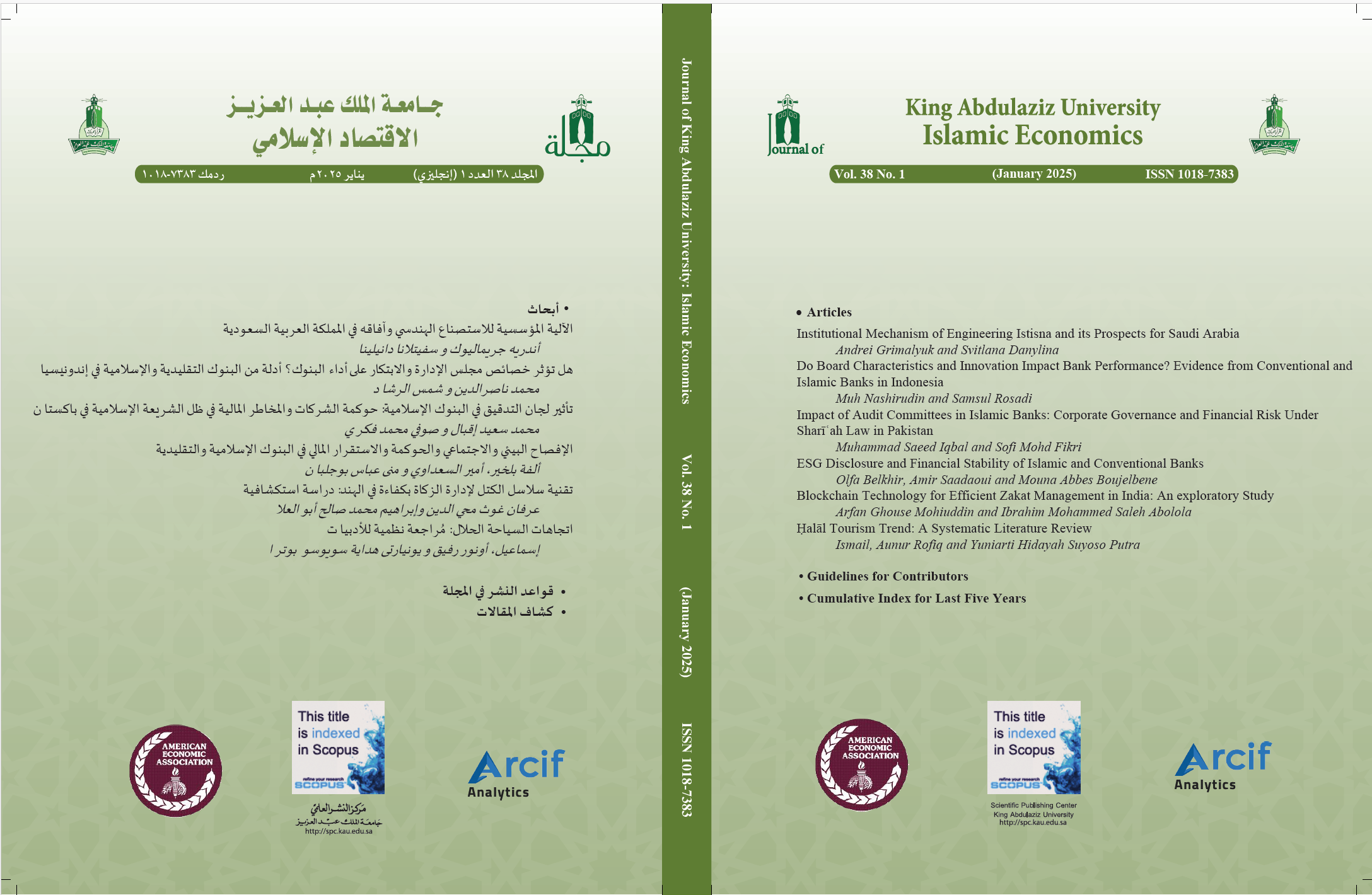Halal Tourism Trend: A Systematic Literature Review
محتوى المقالة الرئيسي
الملخص
تهدف هذه الدراسة إلى تحديد موضوعة البحث عن سياحة الحلال. وطريقة البحث المطبقة في هذا البحث هي طريقة المراجعة المنهجية للأدبيات (SLR) باستخدام تطبيق VOSviewer. كانت المقالات التي تمت مراجعتها 333 مقالة تمّ الحصول عليها من قاعدة بيانات Scopus. ودلّت النتائج أن هناك 159 باحثاً في مجال السياحة الحلال يتألفون من 59 مجموعة من الباحثين، وكان أعلى عدد من الوثائق التي يمتلكها الباحثون 12 وثيقة. إندونيسيا هي الدولة صاحبة أكبر عدد من الأبحاث في مجال السياحة الحلال وهي 132 وثيقة بحثية. ويرجع ذلك إلى اهتمام إندونيسيا الكبير بتطوير إمكانات السياحة الحلال. وتدعم إمكانات التنمية 742 لغة و17100 جزيرة مما يجعلها الدولة ذات أكبر أرخبيل بطول 5120 كم من الغرب إلى الشرق و1760 من الشمال إلى الجنوب، وعدد سكان يزيد عن 250 مليون نسمة مما يجعلها دولة ذات أكبر عدد من السكان المسلمين 88% لإجمالي السكان و12% من المسلمين في العالم في إندونيسيا. قام الباحث أيضًا بتقسيم المزيد من النتائج إلى ثلاث مجموعات: مجموعة الموضوعات، ووقت مناقشة الموضوع، والموضوعات السائدة وغير السائدة. بالنسبة لمجموعة المواضيع، يتكون البحث المتعلق بالسياحة الحلال من 6 مجموعات رئيسية، وهي السوق، والسياحة الإسلامية، والقيمة، ووجهة السياحة الحلال، والنية والأبعاد. فيما يتعلق بزمن مناقشة الموضوع، تتكون الموضوعات ذات الفئة الأحدث من كوفيد -19، وسياسة السياحة الحلال، والنيّة، والقيمة، ووجهة السياحة الحلال، والثقة، والولاء. وفي الوقت نفسه، تتكون فئة الموضوعات الأقدم من السوق، والسياحة الإسلامية، والفرصة، والإمكانات، والإسلام. والنتيجة الأخيرة هي موضوعات المناقشة المهيمنة وغير المهيمنة (تصور الكثافة). تتكون الموضوعات ذات الفئات السائدة من القيمة والسوق والجودة والنية والمعيار. في حين أن الفئة غير المهيمنة هي موضوع كوفيد، والخدمة الحلال، وسياحة المنتجات الحلال، والسعر.وتساهم نتائج هذه الدراسة في توجيه الباحثين نحو تطوير البحوث. مع ذلك، يمكن استخدامها أيضًا كمرجع لتطوير السياحة الحلال. تتمثل محدودية هذا البحث في أن البيانات المستخدمة لا تزال تقتصر على نوع البيانات الثانوية، أي المقالات السابقة التي تم الحصول عليها من قاعدة بيانات Scopus. يحتاج البحث المستقبلي إلى استخدام البيانات الأولية، أي بيانات المقابلات والملاحظة.

